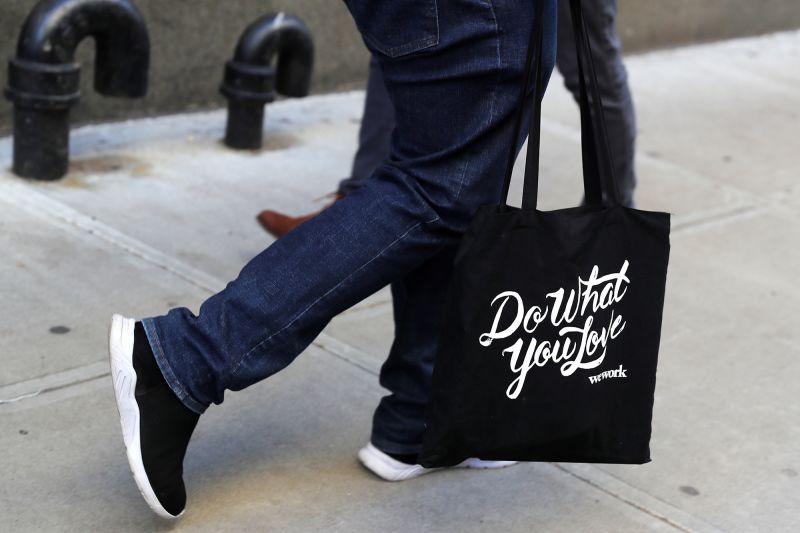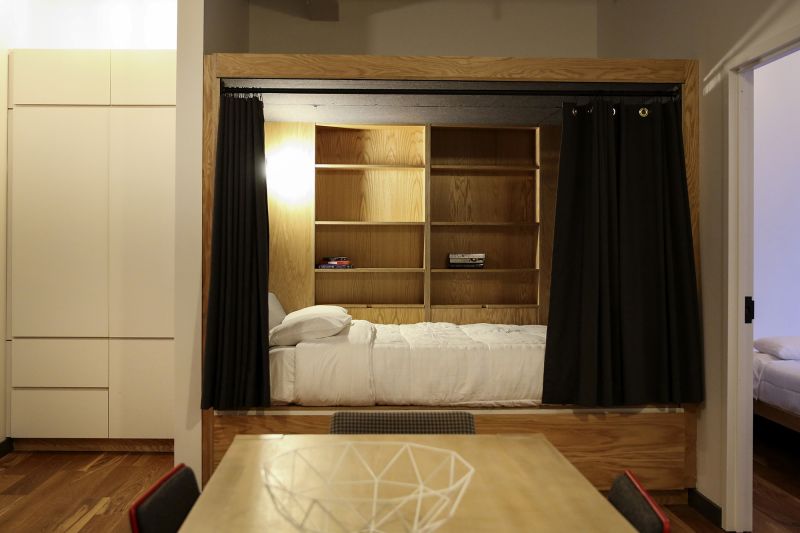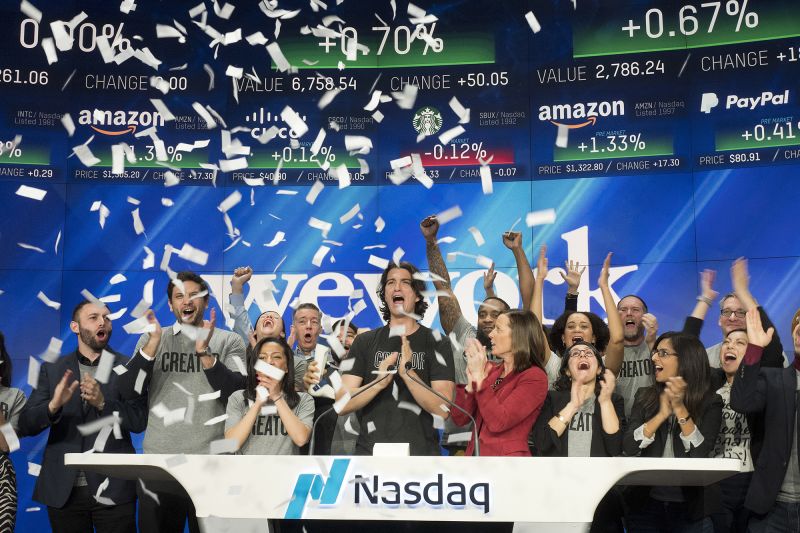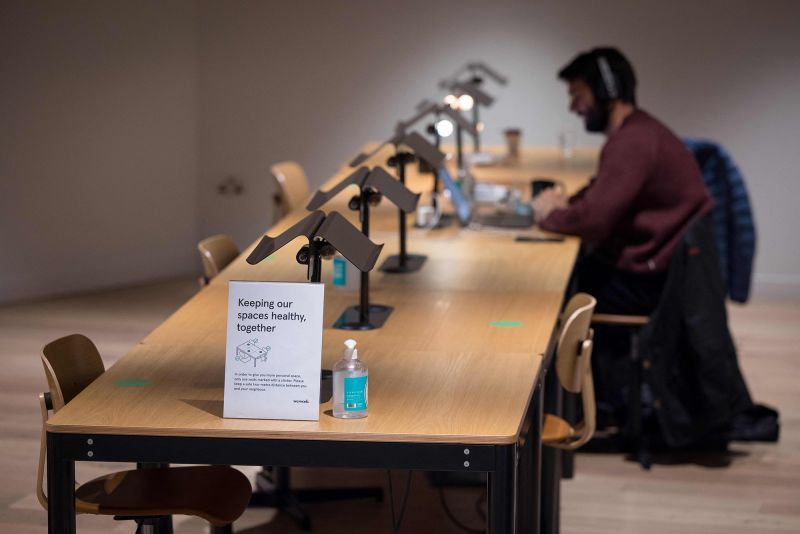
The Craziest Moments in WeWork's Phenomenal Rise

WeWork, the once-promising coworking startup, has officially filed for bankruptcy Explore the wild moments of its rise, from private jet parties to aggressive side projects, layoffs mixed with tequila, and the challenges faced during the post-Neumann era and the pandemic
WeWork has filed for bankruptcy this week, an inevitable outcome for the coworking startup that had once promised to revolutionize office work but has been gradually disintegrating for years.
With numerous documented examples, co-founder Adam Neumann's excessive behavior during WeWork's early days has already been the subject of a best-selling book and a star-studded miniseries. Neumann's charismatic nature allowed him to effectively sell his vision of creating a community and challenging traditional office culture to investors, who enthusiastically invested billions in his mission to "elevate the world's consciousness," as he frequently proclaimed. Riding the wave of easy venture capital funding, the startup's valuation soared to a staggering $47 billion before everything came crashing down.
Neumann was eventually removed in 2019 but departed with a substantial financial settlement and is currently said to be involved in financing a new venture in the real estate industry.
However, there were other individuals who were severely affected by the collapse of the company. Renowned SoftBank investor, Masayoshi Son, incurred significant financial losses while also enduring substantial damage to his reputation as he attempted to support WeWork. Additionally, numerous early employees of WeWork, who accepted lower salaries in exchange for stock options, ultimately received no compensation.
Adam Neumann, founder of WeWork, speaks on stage at the WeWork San Francisco Creator Awards at Palace of Fine Arts on May 10, 2018 in San Francisco, California.
The American tech industry has long been built on various misconceptions, one being the belief that founders possess exceptional foresight and can predict future trends years in advance. The recent rise and fall of WeWork has unequivocally debunked this myth.
Here is a look at four of the wildest moments from WeWorks rise, according to the companys statements and a best-seller about the company.
Getting high on marijuana while flying high on private jets
Neumann's former colleagues have claimed that he had a strong affinity for marijuana, often indulging in it while traveling on private jets.
During the summer of 2019, Neumann and his companions were smoking weed onboard a Gulfstream G650 private jet as they crossed the Atlantic Ocean on their way to Israel. Upon landing, the flight crew discovered "a significant amount of the drug hidden in a cereal box" that was intended for the return journey, according to sources cited by the Wall Street Journal. Concerned about the legal ramifications of transporting marijuana across borders, the owner of the jet recalled the plane, leaving Neumann to arrange his own transportation back to New York.
According to the book "The Cult of We: WeWork, Adam Neumann, and the Great Startup Delusion" by reporters Eliot Brown and Maureen Farrell, Neumann and his inner circle would frequently leave private planes covered in vomit. There was an instance where Neumann himself was flying a private jet and the marijuana smoke was so intense that the cabin crew had to wear oxygen masks.
Neumann's fondness for tequila was not limited to outside the office, as he had no qualms about enjoying it in the workplace. WeWork's attempt to attract millennials included providing free-flowing beer and open bars in their coworking spaces.
However, there were instances where alcohol and partying were thoughtlessly intertwined with work. According to one report, shortly after Neumann laid off around 7% of the staff in 2016, he held a solemn all-hands meeting to discuss cost-cutting measures. Despite acknowledging the difficulty of the situation and emphasizing its necessity for the company's improvement, Neumann proceeded to have employees carrying trays of plastic shot glasses filled with tequila enter the room. Furthermore, he surprised the staff by having Darryl McDaniels of the hip-hop group Run-DMC perform a live set, while some employees were still processing the news.
A laid-off WeWork employee carries a bag as he departs the WeWork corporate headquarters in Manhattan, New York, on November 21, 2019.
Mike Segar/Reuters
WeGrow, WeLive and other aggressive side projects
WeWork, at one stage, also took on the task of revolutionizing early education and the real estate market.
In the autumn of 2018, the company introduced a primary school catering to children from pre-kindergarten to fourth grade, known as "WeGrow." Adam Neumann's wife, Rebekah, led this initiative with a mission to "unleash the superpowers of every individual," as declared by the company. The tuition for the school began at $36,000. Apart from the standard curriculum, children were also educated in yoga, meditation, and farming practices.
WeWork extended its offerings with a venture called "WeLive" in New York City, providing young professionals with a unique co-living experience. These trendy dorm rooms, equipped with numerous amenities, were available for rent.
An alcove bed is seen off the dining room in an occupied unit at the WeLive building in New York, U.S., on Tuesday, Oct. 31, 2017.
Caitlin Ochs/Bloomberg/Getty Images
The company eventually shuttered the school and disentangled itself from its housing ventures.
That pre-IPO paperwork
The start of the downfall can be attributed to WeWork's initial attempt to go public in 2019. In August of that year, the company submitted its S-1 form, which is typically used by companies looking to become publicly traded. However, just six weeks after filing, Neuman was removed from his position as CEO.
The inner operations of the once privately-owned corporation were disclosed in the S-1 document. Apart from uncovering larger financial losses than anticipated and raising significant doubts about WeWork's journey towards profitability, the filing also exposed some of the now notorious conflicts of interest involving Neumann's management.
Adam Neumann, center, co-founder and CEO of WeWork, attends the opening bell ceremony at Nasdaq, Tuesday, Jan. 16, 2018, in New York.
Mark Lennihan/AP
One of the most evident instances of this within the structure was when it came to light that Neumann and his co-founder legally obtained a trademark for the term "we," subsequently proceeding to bill the company nearly $6 million for its commercial usage during the rebranding process.
Following Neumann's departure and amidst the ongoing pandemic.
The news of WeWork's bankruptcy is "disappointing," according to Neumann's statement earlier this week. However, he remains hopeful for the company's future, even in the wake of the bankruptcy. "I believe that WeWork can successfully emerge through reorganization with the right strategy and team," he stated.
A person is employed at a shared workspace located in the City of London's WeWork coworking and office space. The workspace is equipped with signs urging individuals to practice social distancing. This measure is part of the company's efforts to improve health and safety protocols in response to the COVID-19 pandemic.
However, despite Neumann's exit, WeWork has faced significant challenges in steering the company in a different direction. One key factor contributing to these difficulties is the unexpected impact of the Covid-19 pandemic, which emerged shortly after Neumann's departure and dealt a severe blow to WeWork's primary focus of creating collaborative coworking environments.
Even after several years of the pandemic, numerous office workers have become accustomed to remote work and are resisting the idea of returning to the office, resulting in a surplus of vacant offices in major American cities.














